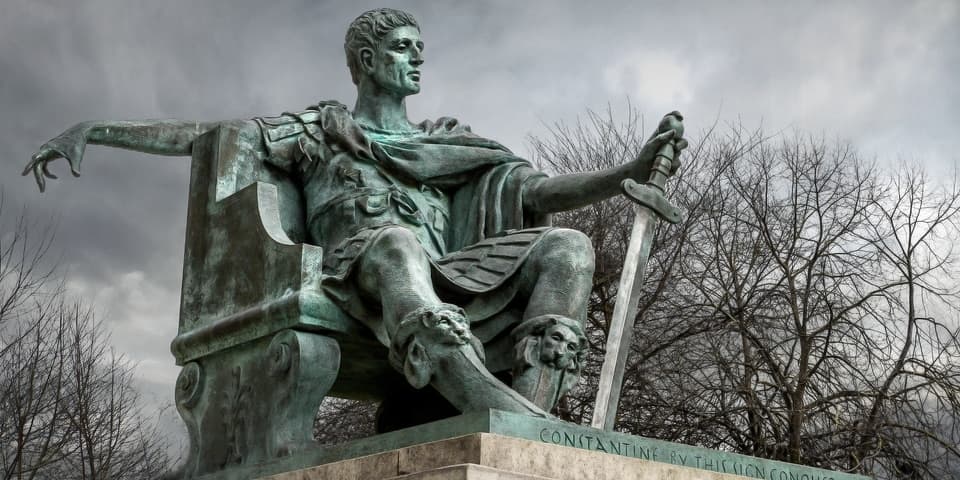When Did Emperor Constantine Have the Bible Reworked?
Emperor Constantine legitimized Christianity, fostering its growth, but he didn't directly alter the Bible.

The idea that Emperor Constantine "reworked" the Bible is a topic that has been widely discussed and sometimes misrepresented throughout history. Many myths surround Constantine’s role in shaping early Christianity and its texts. To better understand his influence on the Bible, it is important to delve into the historical events during his reign and explore his contributions to the early Christian Church.
Constantine’s Conversion to Christianity
In 312 AD, Constantine, then a Roman general, is said to have had a vision before the Battle of the Milvian Bridge, where he saw a Christian symbol in the sky with the words, "In this sign, conquer." He attributed his subsequent victory to the Christian God and soon became a strong supporter of Christianity, leading to his conversion. Constantine’s conversion was a pivotal moment, marking the beginning of Christianity’s rise to prominence within the Roman Empire.
The First Council of Nicaea (325 AD)
One of the most significant events during Constantine’s reign was the First Council of Nicaea, convened in 325 AD. This council was not directly about reworking the Bible but was concerned with addressing the Arian controversy, a theological debate about the nature of Christ. Constantine summoned bishops from across the empire to settle disputes within the Christian faith, and while the focus of the council was primarily on doctrinal matters, such as the relationship between God the Father and Christ, it was a major event in unifying Christian doctrine.
The Nicene Creed, formulated during this council, became a foundational statement of Christian belief. However, it is essential to note that the council did not focus on the editing or reworking of biblical texts. Rather, it was about consolidating Christian theology and practice across the Roman Empire.
Constantine’s Role in Shaping the Christian Canon
A common misconception is that Constantine himself edited or ordered the Bible to be reworked. While he did influence the early church significantly, there is no historical evidence to suggest that Constantine personally altered or rewrote biblical texts. However, Constantine did commission the creation of 50 copies of the Bible for the Church in Constantinople. These copies were prepared under the direction of Eusebius of Caesarea, a prominent bishop and historian, but the texts themselves were not new creations or alterations. Instead, they were likely based on the biblical manuscripts already in circulation among Christians.
Formation of the Biblical Canon
By the time of Constantine, various Christian communities were already using several texts that would later form the New Testament. However, there was no standardized, universally accepted canon. The process of determining which books were considered authoritative took centuries. Some texts, such as the Gospels and Pauline Epistles, were widely accepted early on, while others were debated for some time. The inclusion of certain books like the Book of Revelation and the Letter of James was a matter of ongoing discussion.
Constantine’s reign did not directly result in the establishment of the biblical canon, though his support for the Church helped create an environment where such discussions could take place more systematically. The finalization of the New Testament canon occurred gradually, with major milestones occurring well after Constantine’s death, such as the synods of Hippo (393 AD) and Carthage (397 AD).
The Influence of Constantine on Christianity and the Bible
Though Constantine did not rework the Bible, his contributions to the spread and institutionalization of Christianity cannot be overstated. He played a critical role in legitimizing Christianity in the Roman Empire through the Edict of Milan (313 AD), which granted religious tolerance and marked the beginning of the end of the persecution of Christians. He also provided patronage for church-building projects and helped unify Christian doctrine through the councils he convened.
By fostering an environment of religious freedom and political support for Christianity, Constantine created the conditions necessary for the Bible and Christian doctrines to be preserved, discussed, and eventually formalized by the Church over the following centuries.
Conclusion: Did Constantine Rework the Bible?
In summary, while Constantine’s reign was crucial to the development of Christianity as a major world religion, he did not directly rework or alter the Bible. The emperor's influence was more about unifying Christian doctrine and providing support for the Church's infrastructure, including commissioning copies of biblical texts. The formation of the biblical canon was a separate process, influenced by various church leaders over several centuries.
Explore More:
Verse of the Day
Read Bible in any language
By understanding the context of Constantine's reign and his role in Christian history, we can dispel myths and appreciate his real contributions to the faith and its sacred texts.
This thorough understanding of history helps readers see Constantine's actions in the proper context, without attributing undue influence on the content of the Bible itself.